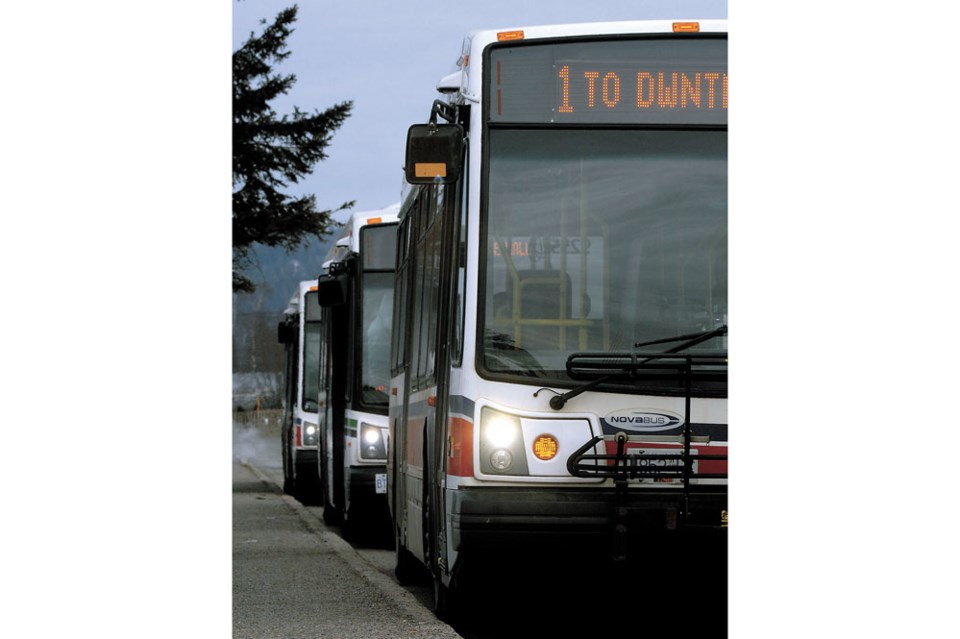The City of Prince George’s contract with BC Transit to provide bus service in the city is expected to increase to nearly $4 million in 2022-23, up from $2.7 million in 2021-22, city council heard on Monday night.
Under the agreement, the City of Prince George pays 53 per cent of the cost of operating the system and the provincial government, through BC Transit, covers the other 47 per cent.
“This is in part due to changes in costs of fuel and other fixed costs of operations over time, as well as the fact that Safe Restart funding, under the previous Safe Restart program, was integrated into the previous (agreements) and is not part of this (agreement),” city transit planner Michael Coulson said.
The provincial Safe Restart grants were provided in 2020-21 and 2021-22, and amounted to roughly $1.2 million, Coulson added.
Mayor Lyn Hall said those grants were designed to help the city weather the all-time-low ridership seen on the city’s transit system during the pandemic.
The city transit system’s revenue is expected to increase 37 per cent next year, up to $2.28 million, city director of civic operations Blake McIntosh wrote in a report to council.
BC Transit manager of government relations Lindsay Taylor said transit systems across the province are responding to changing demands, following the COVID-19 pandemic.
“We’re making sure we are monitoring what is happening around the province and matching service and demand, and meeting community needs as well. Obviously with COVID the landscape has changed considerably,” Taylor said. “We’re seeing about a 73 per cent (ridership) recovery rate, provincially. Here in Prince George, for the conventional system, we’re seeing about a 70 per cent (recovery), but again that changes week to week.”
Currently the Prince George transit system operates 17 local routes and one regional route to Burns Lake, she said. The system runs roughly 77,000 hours of service per year and provides roughly two million rides, Taylor added.
Ridership on the city’s HandyDART system is down 57 per cent from pre-pandemic levels, she added, but has recovered by 37 per cent from its lowest point in 2020/21 at the peak of the pandemic.
NEXTRIDE, ELECTRONIC PAYMENT SYSTEMS COMING
BC Transit’s NextRide installation team in Prince George this week, installing the equipment on city buses, Taylor said. The scheduling and training team will be in the city over the next two weeks, working with the city’s transit team.
Riders who download the Transit App will be able to see where their bus is along its route, a predicted time of arrival at any given stop and how full the bus is at any given time. Some of that data will also be available using a web browser, without downloading the app.
“We hope it will create customer confidence and more people will begin riding the bus again,” Taylor said. “We’ll also have improved data intelligence, so we’ll have some more insight into how passengers are using the transit system.”
In addition, the buses will be equipped with displays and speakers which will automatically inform people on the bus what the next stop is.
In spring next year, BC Transit is planning to launch electronic fare payment on Prince George buses, to allow riders to pay using a tap debit card, phone, Apple Watch or similar device to pay electronically, Taylor said.
“We still will always be accepting money on the bus right now,” she added. “This will just provide some options for our users.”




